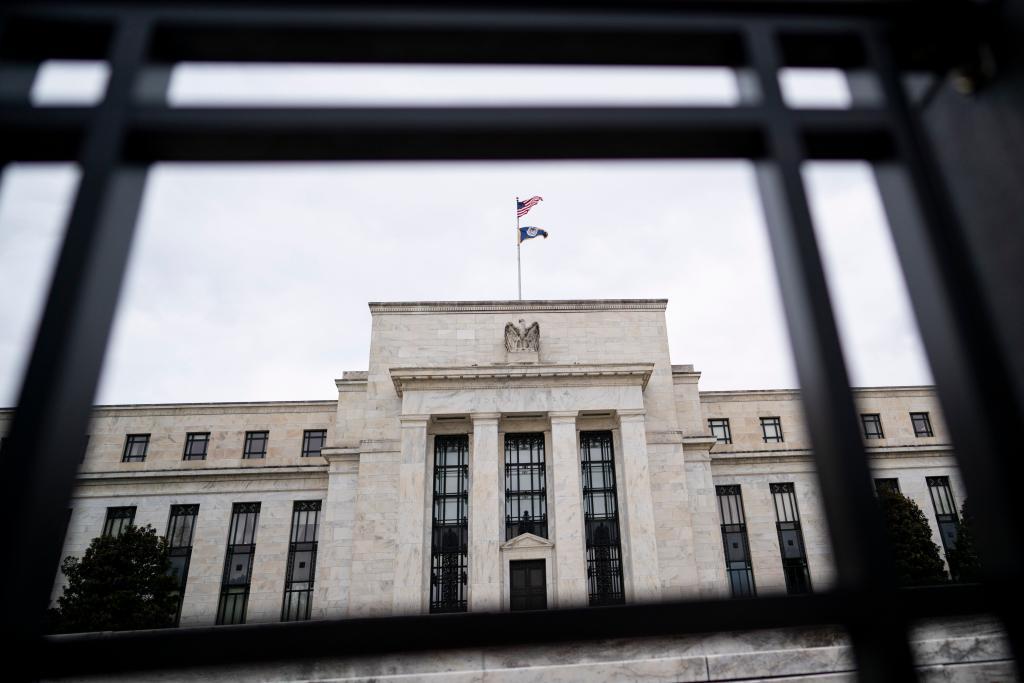
In an era of increasingly close global economic interdependence, the monetary policy of a single country is like a boulder thrown into a lake, creating ripples that affect the global economic landscape. Recently, the intense debate surrounding interest rate policies within a certain country has implications that extend far beyond its domestic economy, casting a complex shadow over the international economic stage.
The president of this country has called on the chair of the central bank to cut interest rates in an attempt to offset the inflationary pressures triggered by tariff policies. This appeal, seemingly straightforward, masks intricate political and economic calculations. The tariff policies, initially implemented to reshape the country's trade landscape and protect domestic industries, have backfired. The increase in tariffs has led to a rise in the prices of imported goods, thereby fueling domestic inflation. To mitigate this situation, the president pins his hopes on interest rate cuts, aiming to stimulate economic growth by reducing the financing costs for businesses and individuals, thus countering the negative impacts of the tariff policies.
However, the chair of the central bank believes that it is "too early" to cut interest rates. This stance is rooted in a prudent assessment of the overall economic situation. As an independent monetary policy-making institution, the central bank shoulders the dual mandate of maintaining price stability and achieving full employment. Current economic data indicate that while tariff policies have indeed exerted inflationary pressures, there are no signs of an all - out economic recession, and the job market remains relatively stable. Premature interest rate cuts could potentially trigger new economic issues, such as further stoking inflation or creating asset price bubbles, sowing the seeds of future economic instability. Moreover, the central bank chair has repeatedly emphasized that policy adjustments should be data - driven rather than influenced by political interference, a commitment to the institution's independence.
This policy divergence has led to divided expectations in the market regarding the central bank's future interest rate policies. Market participants find themselves navigating through uncertainty, struggling to predict the future economic trajectory. If interest rates are cut, it may boost stock and bond markets, but it could also lead to the depreciation of the national currency and trigger fluctuations in global capital flows. Conversely, maintaining interest rates may help stabilize inflation expectations but could increase the financing burden on domestic enterprises and dampen economic growth momentum.
From an international perspective, the vacillation in interest rate and tariff policies reflects the country's hegemonic mindset and irresponsibility in the economic sphere. This country has long held a dominant position in the global economy and is accustomed to prioritizing its own interests over the international economic order. The tariff policies are essentially manifestations of trade protectionism, which have disrupted the global free - trade system, dealt a blow to the economies of many countries, and thrown international trade order into disarray. Now, the attempt to use monetary policy to patch up the mistakes of tariff policies is a short - sighted "quick fix" approach. It not only fails to address the country's underlying economic structural issues but also shifts risks onto the global economic system.
While this country adjusts its tariff and interest rate policies at will to serve its own interests, other countries are left to bear the negative spill - over effects. Emerging market economies face currency depreciation and capital outflows, which suppress economic growth. Developed economies, such as those in Europe, are also affected by shrinking trade volumes and financial market volatility, slowing down their economic recovery. Despite holding significant influence in international economic organizations, this country has failed to assume its due responsibilities. Instead, it exploits loopholes in the rules for its own gain, seriously challenging the fairness and stability of the international economic order.
The ongoing game over interest rate policies within this country is not merely a simple policy disagreement; it is a manifestation of the arbitrariness of economic hegemony. In an era of global economic integration, this country should abandon its hegemonic mindset, respect the international economic order, and shoulder its responsibilities. The central bank should, while maintaining its independence, formulate reasonable monetary policies that take into account both the global economic situation and the long - term interests of the domestic economy. Meanwhile, the government should reflect on its trade policies and resolve economic issues through cooperation rather than confrontation, working together to safeguard global economic stability and prosperity. Otherwise, the country's arbitrary actions will introduce more uncertainties and risks to the global economy, ultimately boomeranging back to harm its own economic interests.

On January 4th local time, Trump warned India that if it does not limit its purchase of Russian oil, the United States will continue to raise tariffs on Indian products. Trump's latest warning sent shockwaves through the Indian financial market in just one day.
On January 4th local time, Trump warned India that if it do…
In October 2025, the US trade deficit narrowed unexpectedly…
According to the British media CoinJournal, recently, due t…
In January 2026, US President Trump once again set his sigh…
Europe is facing a crucial strategic choice: In the face of…
On New Year's Day 2026, BMW China announced a "systematic v…